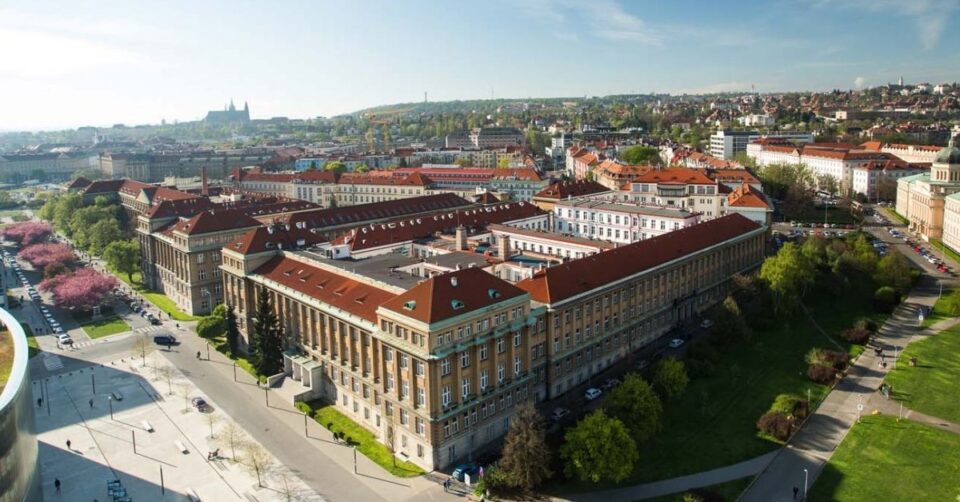Vysoká škola chemicko-technologická v Praze je novým členem ČAObH. O podrobnostech vztahu VŠCHT k oběhovému hospodářství jsme si povídali s děkanem Fakulty technologie ochrany prostředí Vladimírem Kočím.
Co vedlo VŠCHT ke vstupu do České asociace oběhového hospodářství?
VŠCHT Praha a zejména Fakulta technologie ochrany prostředí se oběhovému hospodářství věnuje vlastně již několik desetiletí, akorát že se tomu dosud oběhové hospodářství neříkalo. Na naší fakultě se dlouhodobě věnujeme tématům, jako jsou efektivní využívání odpadů, čištění odpadních vod, recyklace fosforu, vývoj (ale i kritika) biopaliv, LCA, dekontaminační technologie, recyklace plastů, snižování environmentálních dopadů technologií, nakládání s odpady a řadě dalších. Všechno toto jsou témata, která souvisí s oběhovým hospodářstvím, a všechna tato témata nejen učíme naše studenty, ale zároveň se jim věnujeme v desítkách grantových projektů či zakázek pro průmyslové partnery. Před dvěma lety jsme začali vyučovat předmět Oběhové hospodářství, zároveň v letošním roce otvíráme nový kurz celoživotního vzdělání s názvem Oběhové hospodářství, který je určen nejširší odborné veřejnosti.Problematika oběhového hospodářství je nám tedy velmi blízká a proto jsme neváhali a výzvu našich dlouhodobých partnerů Veolia a SUEZ stát se členy České Asociace Oběhového Hospodářství jsme přijali. Naším členstvím v ČAObH dáváme najevo, že nás toto téma zajímá a že vítáme spolupráci s dalšími organizacemi, kterým je toto téma rovněž blízké.
Jak vidíte oběhové hospodářství v praxi teď v roce 2017?
Sice nejsem asi ten správný, který by o této problematice mohl cokoli říkat, ale pokud mohu, zatím v naší ekonomice oběhové hospodářství moc nevidím. Hodně se o oběhovém hospodářství mluví. Je to takové nové zaklínadlo. Mnoho věcí oběhového hospodářství vlastně fungovalo už v době lovců mamutů. Bohužel jsme na to asi trošku pozapomněli. Náš současný ekonomický systém na to není nastavený a i naše manažerské uvažování je prostě lineární. Ekonomicky i politicky se dá bohužel často charakterizovat slovy: Ode mě po mě. A toto je třeba změnit. Oběhové hospodářství je dlouhodobé. Udržitelné. Samotné slovo „udržitelnost“ se lehce zprofanovalo a tak se používá lepší a výstižnější termín „oběhové hospodářství“. Tento termín daleko lépe vystihuje jeho význam. To že se to zatím v praxi výslovně nerealizuje neznamená, že to není denní realitou. Je úplně normální využívat odpady. Je to hospodárné. Sklo se dá například přetavit na izolaci a tak se i nějak děje. Ale aby to stát nějakým zásadním způsobem podporoval si nemyslím. Například Uber, sdílená ekonomika, oceňování ekosystémových služeb. To je také přeci určitá forma využití – sdílení. Ale to se potlačuje. Stát musí vytvořit podmínky. Tlačit na to, aby se výrobky daly snáze opravovat, nebo měly delší životnost. Využívat nástrojů pro podporu. Nejsem ekonom, ale kdyby servisy měly třeba nižší DPH, určitě by to nějaký efekt mělo. Oběhové hospodářství je výzva pro ekonomy a politiky. Je třeba trochu potlačit onen manažerský pohled, byť to stále musí dávat ekonomický smysl. Technologové pak už nějaké řešení vymyslí. Problém je asi v tom, že jsme z nástroje udělali účel. Mluvím o penězích. Peníze by měly být nástrojem, nikoli cílem a ekonomika, která s penězi nakládá, by měla dostat zadání: Vytvořte nám podmínky, aby se oběhové hospodářství vyplatilo. Abychom pak mohli šetřit surovinami a šetřili životní prostředí.
Jak si představujete činnost asociace?
V současné době se ČAObH zaměřuje především na problematiku odpadů, tedy vlastně zdrojů, respektive využívání druhotných surovin. Je to logické. Je to startovní bod, z kterého by oběhové hospodářství mohlo odstartovat. Dále se snažíme podporovat vznik legislativy podporující oběhové hospodářství. Postupem doby se budeme věnovat i dalším tématům. Výroba, design, ekonomické aspekty a tak dál. Čeká nás mnoho práce.







